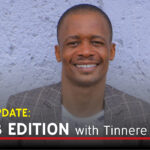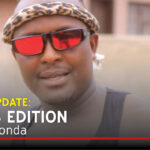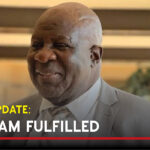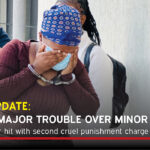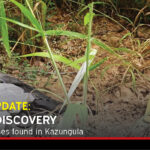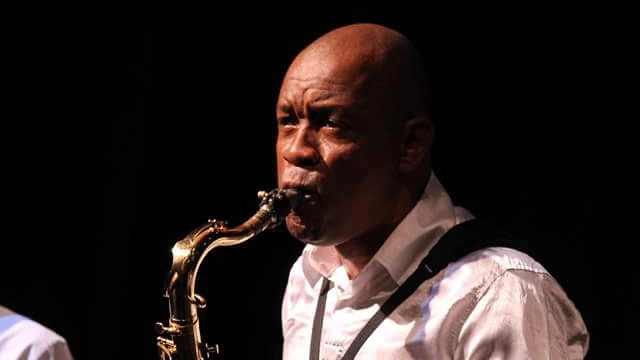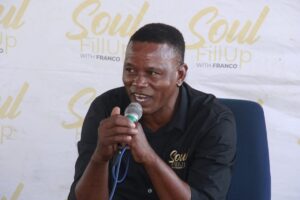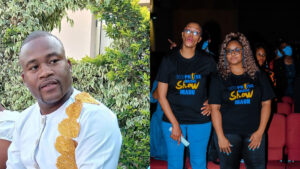“I always remind my students that Jesus never said it would be easy. He said it would be worth it!”
When the University of Botswana (UB) officially opened its doors back in 1982, Dr Patricia Finky Mogomotsi nee Madigele was still seven years away from being born.
Last week, the 31-year-old became the youngest Associate Professor in the university’s history.
It is the latest achievement in a life bursting with impressive highs.
The Molapowabojang native, who completed her PhD in just 18 months, is one of the smartest individuals in the country – and she has the qualifications to prove it! As well as her PhD, Mogomotsi boasts a Bachelor of Arts (Economics), Bachelor of Commerce Honours (BComm Hons) in Economics, Master of Economics and Master of Financial Management.
However, as the Associate Professor (Natural Resources Economics) at Okavango Research Institute University of Botswana in Maun explains in this interview with PORTIA MLILO, hard work has played a crucial role in her rise.

Q. We meet on this platform once again, welcome back and massive congratulations on becoming the youngest Associate Professor in the history of UB. How much does this mean to you?
So I hear! It is absolutely unbelievable! I published my very first research output in 2016.
I am now at just over 50. The title and rank give me some sort of validation that I am doing something right. I am elated!
Q. Describe your reaction when you received the news?
I applied for promotion last year July.
The application had to go through three committees within UB before it was sent to external assessors within my field based all over the world.
This is done for quality assurance and is an international practice.
I awaited the completion of the processes with fear and trepidation.
I had to constantly counsel myself to accept the good and the bad with equanimity.
The good news gave me a sense of relief!
I now know that I boldly stand on the shoulders of academic giants within natural resources economics subfield.
Q. What does it take for one to rise to the rank of Associate Professor and how long did it take you to claim the title?
To be an Associate Professor, one must have a minimum of 21 research products.
These include refereed journal articles, book chapters, conference proceedings etc. 14 of the 21 publications must be articles in internationally recognised journals.
The researcher must demonstrate sustained research activity.
In addition to research, the researcher has to satisfy teaching and service requirements. Service is three-pronged: service to the university, service to community and service to profession.
One must also display academic leadership.
I joined UB in September 2015 as a research fellow – the equivalent of a lecturer.
It has taken me almost four-and-a-half years to reach my current rank.
Now that I have just reflected on the journey, I am in awe! It is amazing how much I have achieved within such a short space of time.
Q. It is indeed! So, what exactly does your new role entail?
When you are an Associate Professor based at a research institute of UB, you are expected to be engaged substantially in research, governance, teaching and social engagement.
At the minimum, I am expected to produce at least four refereed research publications per year compared to, for example, a research fellow who is expected to produce two publications per year.
The teaching and graduation supervision expectations are also steep.
Q. A lot of young people find it difficult to concentrate on their studies and get easily distracted. How do you manage?
What everyone needs to understand is that education empowers.
I mean any form of education, be it formal or informal.
Every one of us responds to studies differently – some are fast learners, others are slow learners.
Regardless of the type of learner you are, you can do it to the finish line if you work passionately towards it.
I believe in doing everything with passion. Passion prompts you to be innovative in getting the best results with so little discomfort.
Martin Luther King Jr once said, “If a man is called to be a street sweeper, he should sweep streets so well that all the hosts of heaven and earth will pause to say, ‘Here lived a great street sweeper who did his job well’.”
We should live by these words and aspire to be the best versions of ourselves at all times.
Q. Any plans to publish a journal on the outbreak of Covid-19?
We have just completed working on a manuscript which focused on analysing the regulatory regime for responding to the Covid-19 pandemic and other public health emergencies in Botswana.
It was a collaborative effort between colleagues from the Okavango Research Institute and UB main campus.
My role in the paper was to analyse the economic history of pandemics and their impact on service industries such as tourism.
I also had to analyse the current and projected impacts of Covid-19 in Botswana generally, and the tourism sector specifically.
Q. You are a married mother and successful career woman. How do you balance both?
It is all about finding the right balance. If one role suffers, it implies that you are definitely not doing something right.
It is also important to seek support from family, friends and colleagues to make life bearable.
Fortunately, my husband is also a colleague and we co-author a lot of times.
This makes the whole journey very enjoyable.
Q. Which of your over 50 research articles did you enjoy doing most?
In 2017, we published a journal article titled, ‘Live by the gun, die by the gun: Botswana’s ‘shoot-to-kill’ policy as an anti-poaching strategy’ in South African Crime Quarterly.
From its controversial title and its bold stance, it attracted a lot of attention.
We were even contacted by Survival International a few weeks after it was published.
The paper likened poaching to war on nature and argued in support of militarisation of conservation.
I thoroughly enjoyed working on it.
Q. What challenges do you face as a scholar?
Lack of funding is a huge problem.
Most of my research work was self-financed.
Q. What makes a great scholar?
A great scholar must be a team player.
The world benefits more from researchers who propose recommendations using both multidisciplinary and transdisciplinary approaches.
Working within a team of people from various disciplines gives research a holistic view and makes it a lot more practical.
A great researcher also needs to have sharp analytical skills.
Other features include passion, foresight, confidence and a good command of your area of speciality.
Q. Your latest publication is about developing a framework for sustainable coexistence between eco-tourism and agriculture in Botswana. Briefly share with our readers what it is all about?
The article is an output of my human-wildlife project, from where my PhD thesis came.
It argues that Botswana has experienced changes in the institutional landscape of natural resources governance and management in the form of land reforms, policy revisions and enactment of legislature over the years.
Some of these changes introduced and fuelled land-use conflicts between traditional and contemporary livelihood activities, especially in ecologically sensitive areas such as the Okavango Delta.
There has to be a participatory approach in the design of natural resources management policies and strategies.
Communities have to play an active role in policy formulation, land-use planning, policy implementation and policy evaluation and revision.
This process should have both forward and backward linkages with all stakeholders involved.
Q. Sounds fascinating – but why this topic in particular?
Human-wildlife and land-use conflicts affect both the tourism business and rural livelihoods, especially farming.
These conflicts often explain the conundrum of high levels of poverty in the natural resources-rich Okavango Delta.
I have a constant thirst of understanding the paradox using insights from people with real life experiences.
Q. What impact do you think, or hope, it will have on Botswana’s economy in regards to tourism and agriculture?
The article challenges land-use policy makers to employ strategies that provide viable, effective and affordable options from addressing land-use conflicts.
It also proposes a framework that supports the sustainability of both agriculture and tourism going forward.
We should promote environmental management while being sensitive to both the needs and livelihoods of local communities.
Like I always say, we cannot have a happy economy with unhappy farmers!
Q. What do you believe can be done to address the conflict between tourism and agriculture?
Our tourism in Botswana is largely nature-based and wildlife-based.
Therefore, there is a need for a delicate balance between biodiversity conservation and ensuring sustainable livelihoods.
This requires applying inter-disciplinary and transdisciplinary tools that integrate concepts and methodologies from various disciplines with the aim of proposing practical ways of attaining that intricate balance.
The aim is to move towards a mutually beneficial and symbiotic relationship between tourism and agriculture.
Q. This is your eighth journal since the beginning of the year – that’s an average of two a month! How many articles are you supposed to publish annually?
The new rank requires me to publish a minimum of four outputs per year.
But I have a personal target of eight outputs annually.
Q. Who is your inspiration?
My husband, Dr Goemeone Mogomotsi. He does so much work with so much ease. I still wonder how he does it!
Q. Good, so it hasn’t changed since our last interview! Moving on, what are your future plans as far as your career is concerned?
The most obvious plan is to work towards my next and final promotion.
I already have enough papers for the next rank.
I also hope to supervise at least two PhD students to completion in the next four years.
I hope to work for an international organisation, maybe the environmental department of United Nations for a few years before coming back to UB to apply the international experience to my research.
Q. What advice can you give to young people who are aspiring to be Professors?
I always remind my students that Jesus never said it would be easy.
He said it would be worth it!
A smooth journey is not guaranteed, but victory is.
All you need is to push yourself to the top.
Use people whose aims are aligned to yours for an extra push. Do not let people talk you out of your dreams.
Q. How do you relax when you are not researching?
I give my son all the attention in the world and dance to his music.
Q. And finally, Thank God It’s Friday, what are your plans for the third weekend of lockdown?
We have no option but to keep staying at home and staying safe.
I have a novel I have been planning to read since 2018.
I plan to give it a read over the weekend.




